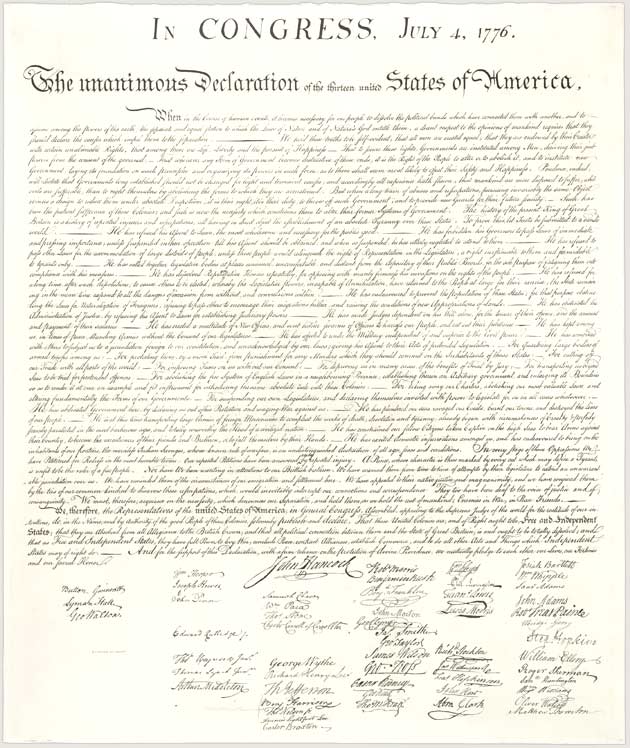|
|
Biblical Perspectives on Governmental Authority - Part Two
Biblical Perspectives on Governmental Authority - Part Two is a follow on Bible study to the first lesson.
In the first lesson we observed that God instituted control measures for human behavior once sin had manifested itself in our world. We also noted that although there are laws that prescribe human behavior, such as the Ten Commandments written by God himself, all humans have always generally agreed to unspoken rules of right and wrong. We took note that God has reserved for himself the right to avenge wrong-doing.
Finally, we touched on the fact that God addresses evil today through the state; that is, through governmental power as provided in Romans 13:4. That's the focus of this lesson.
Biblical Perspectives on Governmental Authority - Part Two

First and foremost, before we move forward with this study on Biblical Perspectives on Governmental Authority Part Two, let's all recognize that there's an eternal kingdom coming. Jesus Christ is the eternal king and he'll reign perfectly and without partiality for eternity in the future.
Until then, we're under imperfect kingdoms or governments because there are imperfect people in charge of them. Some are worse than others, but all are imperfect.
However, the Bible teaches us some important things about how we're to relate to the authority we live under in our world while we wait for Christ's return.
This lesson is based on the first seven verses of Romans chapter 13. Please read that passage to answer the questions below.
For a child will be born for us,
a son will be given to us,
and the government will be on his shoulders.
He will be named
Wonderful Counselor, Mighty God,
Eternal Father, Prince of Peace.
Isaiah 9:6
2020. Christian Standard Bible. Nashville, TN: Holman Bible Publishers.
Day One
As you're reading Romans chapter 13, you might wonder: "What was Paul's motivation to write about the Christ-follower's attitude toward their government?" Douglas Moo offers an answer to this very question. Let's review it.
"One reason may be theological: Paul is worried that Christians will take his demand not to "conform . . . to the pattern of this world' (12:2) too far, lumping government into the category of 'this world' and therefore refusing to respect its legitimate, divinely ordained position and function.
But three other specific historical movements may have contributed to 'anti-government' thinking among the Roman Christians.
1) The Jewish Christians in Rome had experienced a severe disruption in their lives when Emperor Claudius expelled all the Jews (including Jewish Christians) from the city in AD 49 . . . this event may well have led to resentment against the government of Rome.
2) The decade of the 50s saw a spectacular increase in Jewish Zealot activity and popularity. The Zealots were the political terrorists of their day. They preached insurrection against the Roman government, insisting that Israel's subjection under foreign domination was contrary to her calling to be a theocracy.
The Zealots eventually won enough people to their side to incite a violent four-year insurrection against Rome (A.D. 66-70); in fact, the last holdouts, at Masada, weren't defeated until A.D. 73. We don't have much evidence of Zealot sympathy among Roman Jews in these years but it's possible the movement indirectly influenced attitudes of Roman Christians.
3) The Roman historian Tacitus mentions resistance against the payment of indirect taxes in the middle 50s in Rome. The resistance culminated in a tax revolt against the government in A.D. 58, a year or two after Paul wrote Romans. Some of the Roman Christians may well have shared these sentiments; note how Paul climaxes his call to submit to the authorities with commands to pay taxes (13:7)"1
There may be many situations or circumstances condoned by your government that may cause you, perhaps like the Roman Christians Paul wrote to, resent your government and its authority.
Question 1 - Can the government you live under influence Christians to sin?
Question 2 - Alternatively, can it influence the people it governs not to sin?
For both questions, explain how this might be so.
Day Two

Question: For what reason should people should submit to governmental authority?
Day Three
Question: What is the purpose of government?

Day Four
Question: Is it possible to be a policeman or soldier, and still be an ethical Christian?
Day Five
Question: How should Christians respond when a government endorses or enforces a law that requires them to disobey the commandments God provides in the Bible?
Click here to compare your answers to Biblical Perspectives on Governmental Authority Part Two.
1 Moo, Douglas J. 2002. Romans, Clinton E. Arnold (ed), Zondervan Illustrated Bible Backgrounds Commentary: Volume 3, p. 77. Grand Rapids, MI: Zondervan.
We pray this lesson on Biblical Perspectives on Governmental Authority Part Two has blessed you.